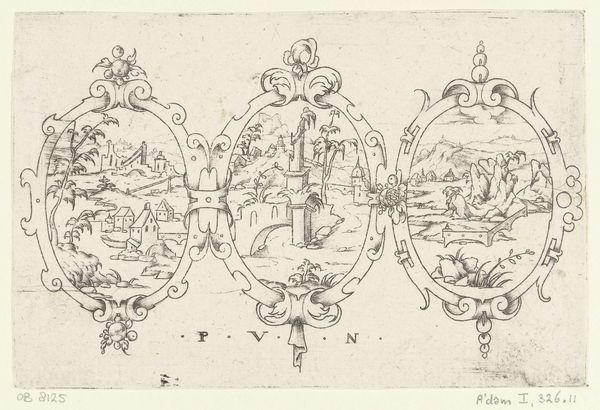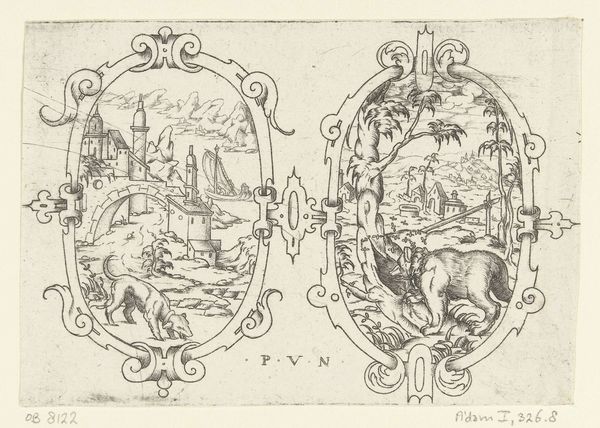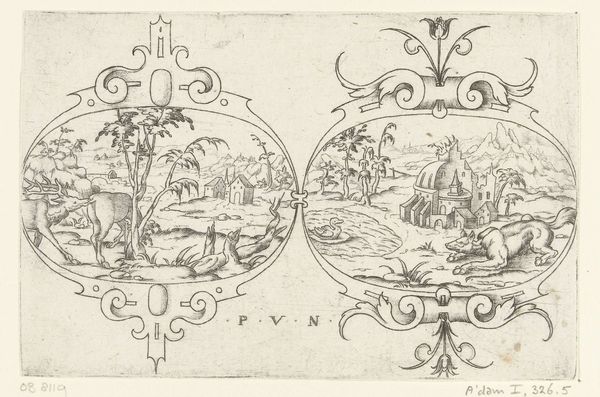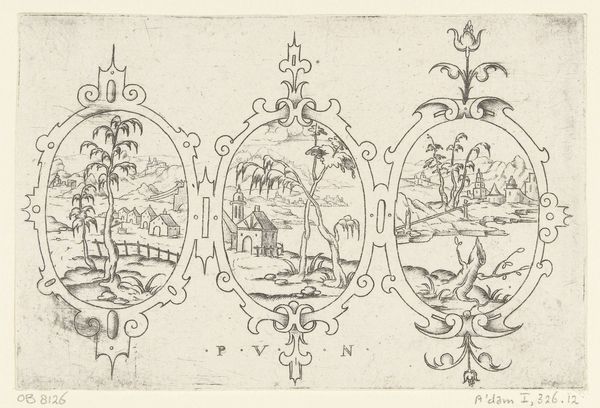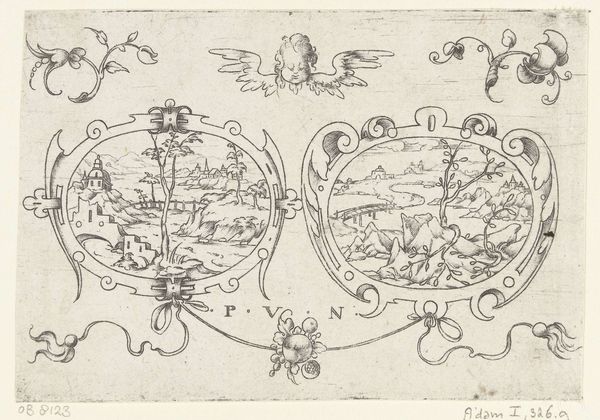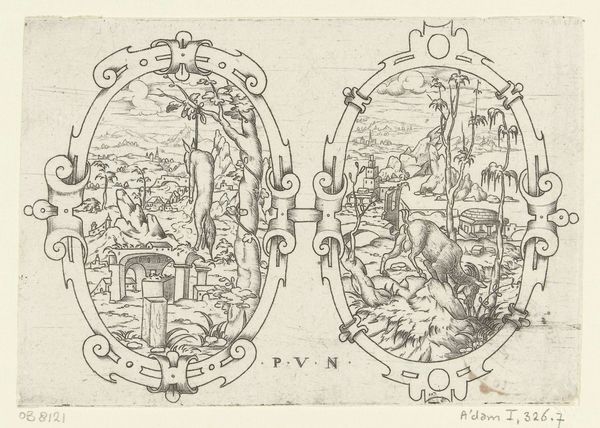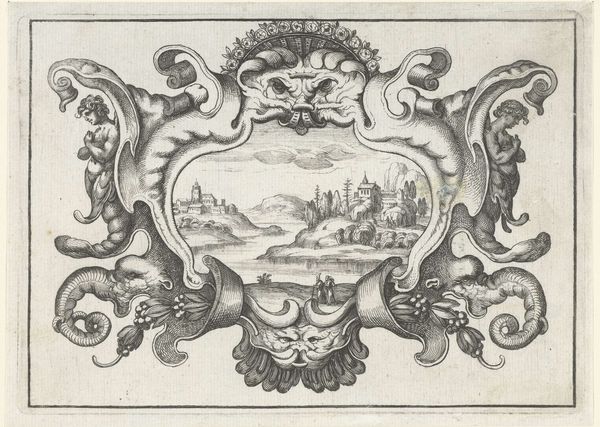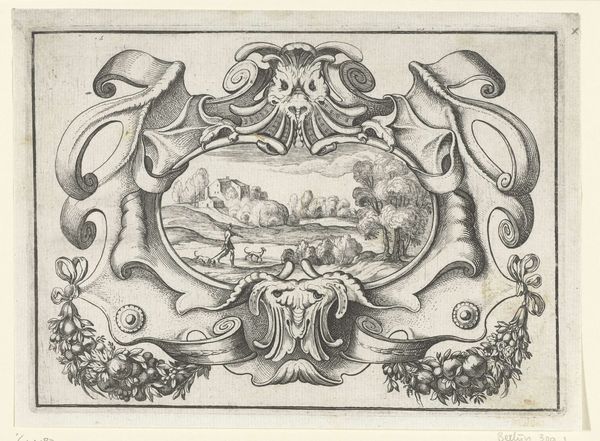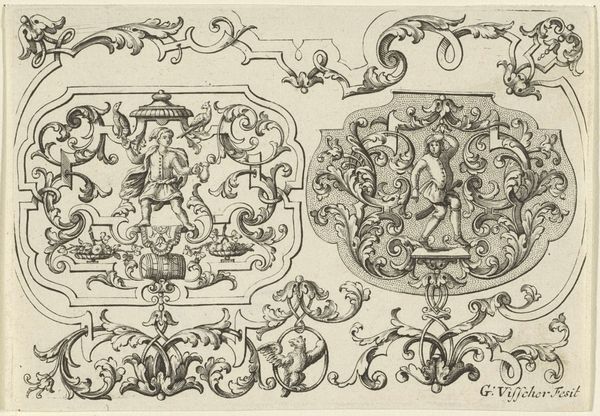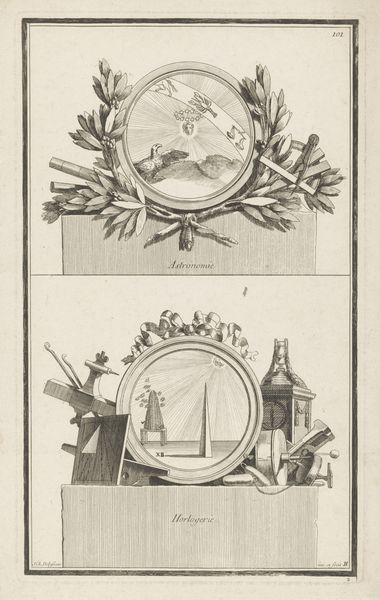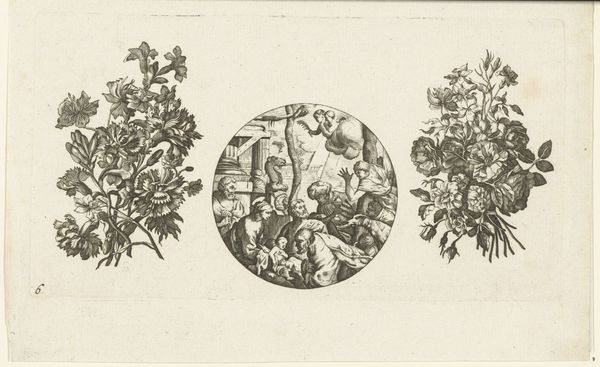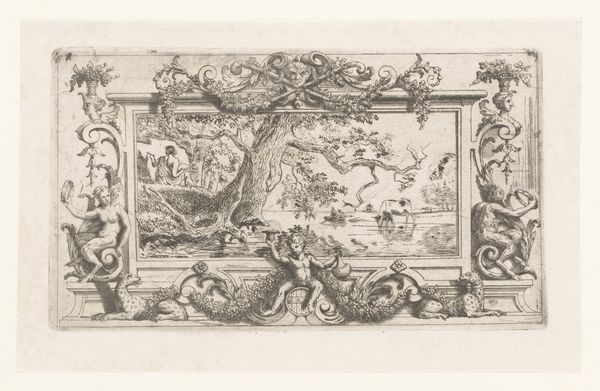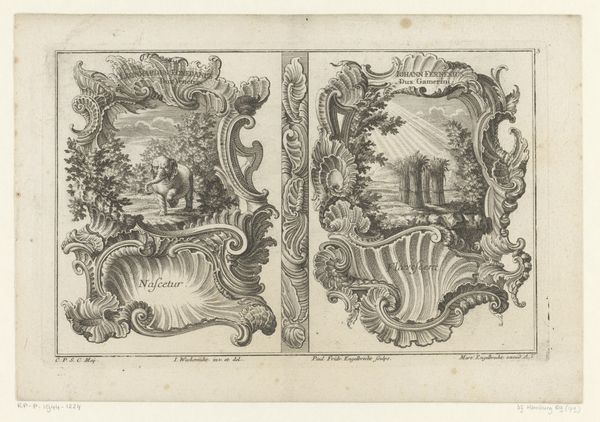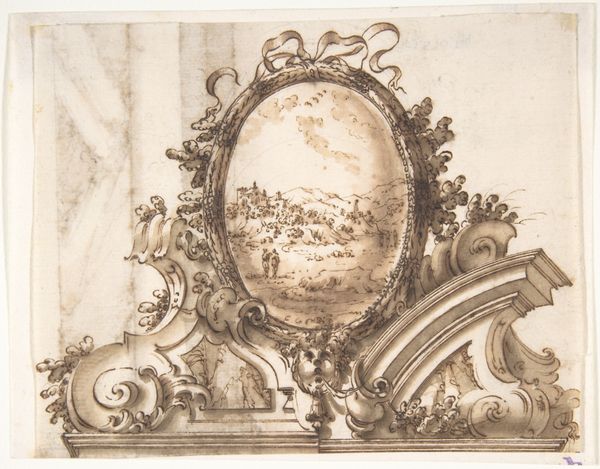
print, etching, engraving
#
narrative-art
#
baroque
# print
#
pen illustration
#
etching
#
old engraving style
#
landscape
#
figuration
#
ink line art
#
engraving
Dimensions: height 100 mm, width 138 mm
Copyright: Rijks Museum: Open Domain
Paul Flindt created this copper engraving, Twee liggende ovalen met konijnen, which translates to "Two Lying Ovals with Rabbits", sometime between 1567 and 1631. Copper engraving is an intaglio process, meaning the design is incised into a copper plate, which is then inked and pressed onto paper. Notice how Flindt's skilled hand coaxes fine lines from the resistant metal. The ovals, each a miniature landscape populated with rabbits, are framed by ornate, geometric borders. This level of detail would have required great dexterity and precision. The printmaking process, though demanding, allowed for the mass production of images, which, in turn, fueled the spread of ideas and aesthetics. Prints like these were often collected in albums, used as models for other artists, or even incorporated into decorative objects. By embracing this relatively new technology, Flindt was able to engage with a wider audience, bridging the gap between the artist's studio and the world of commerce. So, next time you encounter a print, take a moment to consider not only the image itself, but also the intricate dance of materials, labor, and technology that brought it into being.
Comments
No comments
Be the first to comment and join the conversation on the ultimate creative platform.
